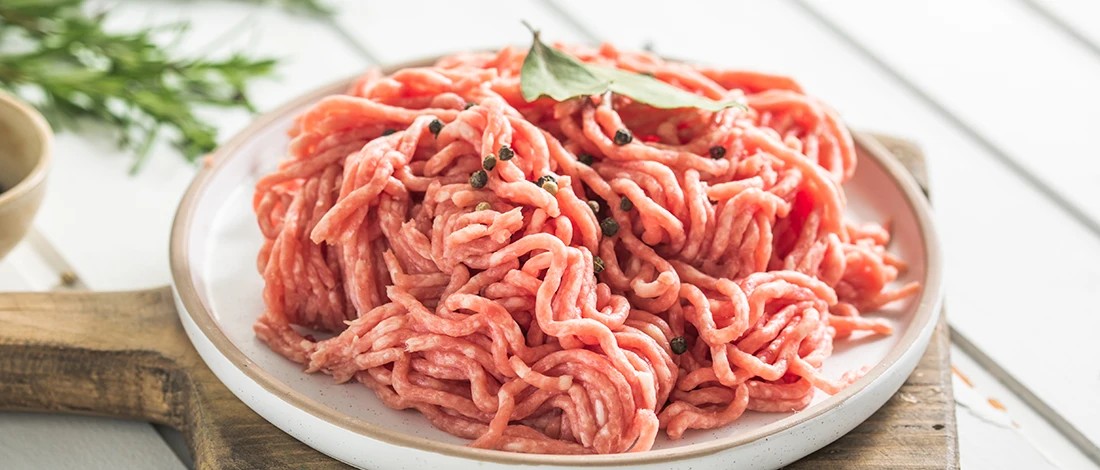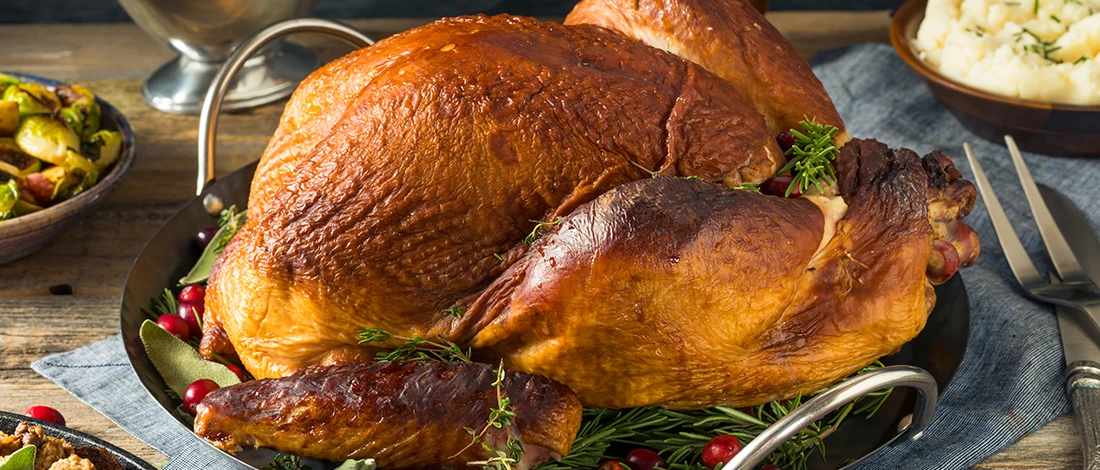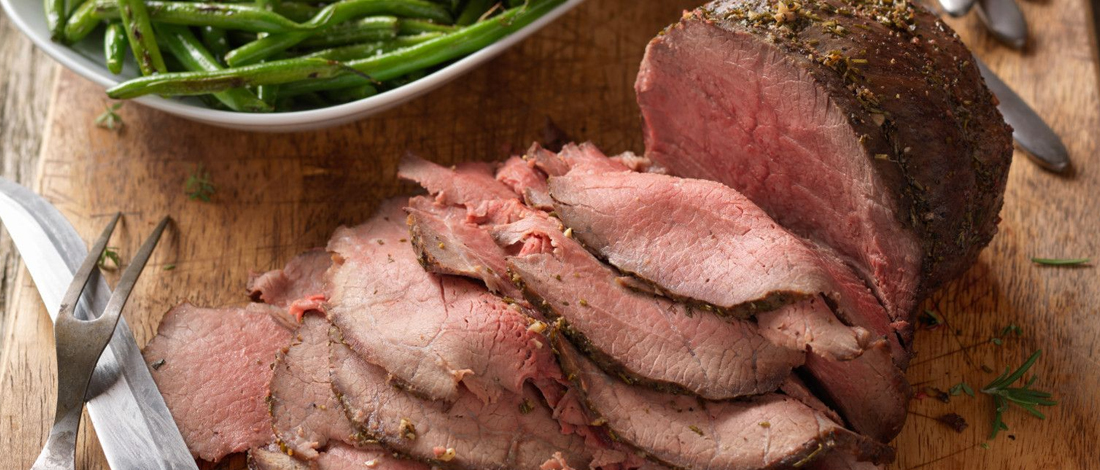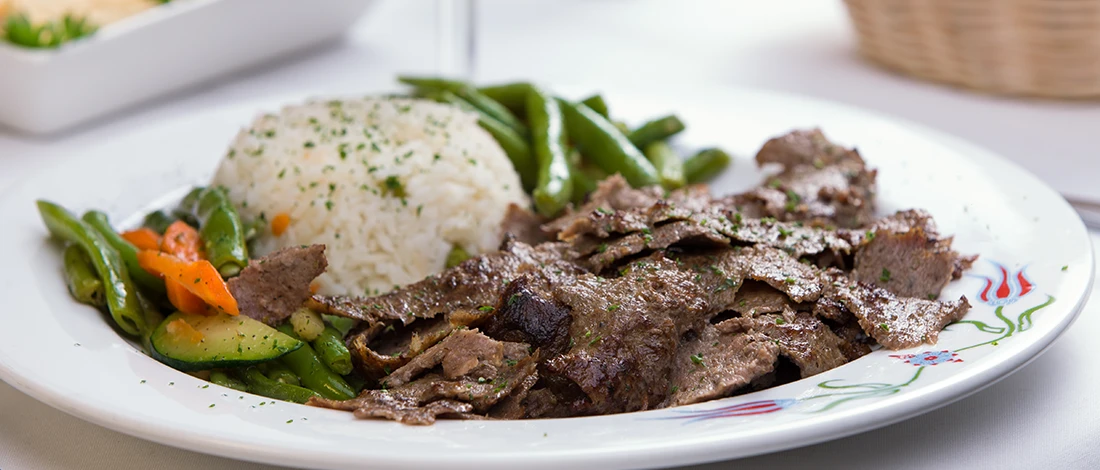Although I’ve always heard many vegans claim that you can easily have every nutrient you need without eating meat, I have to admit I’ve been a bit skeptical about this claim.
To get to the bottom of it, I spent hours reading studies and eventually sat with my dietician and other Carnivore Style's team experts to get insight into meat's nutrients and their benefits so that I could put the pieces together.
Here's what I’ve discovered.
Quick Summary
- Meat contains iron, vitamin B12, vitamin D, creatine, and taurine.
- Animal foods are rich in DHA, a healthy fatty acid that maintains normal brain function.
- People on vegan diets may be susceptible to osteoporosis and multiple sclerosis due to the lack of Vitamin D3 found in meat.
What Nutrients Are in Meat?
Nutrients that are in meat include vitamins, creatine, and iron.
Here's a detailed description of all nutrients found in this powerhouse food.
1. Vitamin A (Retinol)

Retinol, a type of vitamin A, is only present in meat and other animal foods like beef liver, lamb liver, and liver sausage. It is necessary for sustaining the immune system, physical growth, brain function, eyesight, and reproduction [1].
Retinol is a fat-soluble vitamin that, when combined with animal fat, is absorbed into the bloodstream and used by the human body.
Some fruits, like papaya, are high in vitamin A, but it's in the form of a carotenoid, which the body must first convert into vitamin
A. Vitamin A retinol found in meat is far more accessible than the equivalent vitamin in plant-based foods [2].
According to studies, the efficiency of retinol absorption is over 30% in one hour, but for plant-sourced Vitamin A (carotenoids), the absorption rate decreases by at least 5% [3].
You might become deficient in vitamin A if you don't get it through your food, leading to symptoms including thinning hair, dry eyes, infection risk, and nighttime blindness [4].
2. Heme Iron
Only in meat, particularly red meat, can you find heme iron. Compared to non-heme iron, which is frequently present in plant foods, heme iron is significantly better absorbed by our bodies.
Your ability to absorb non-heme iron from plant meals is also enhanced by heme iron through a phenomenon called the meat factor [5].
The meat factor is a concept that explains the improved absorption of plant nutrients when consumed alongside meat.
The reason behind the poor absorption of non-heme iron is the presence of anti-nutrients. Anti-nutrients like phytic acid, also contained in plant diets, might further restrict its absorption [6].
Luckily for meat eaters, anti-nutrients do not interfere with the absorption of heme iron like they do with non-heme iron.
3. Creatine
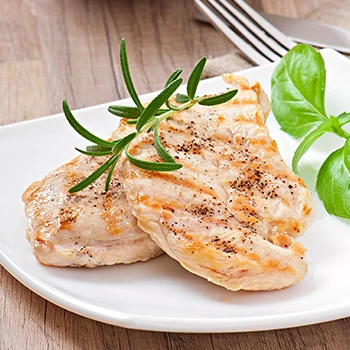
Over the past several decades, creatine has become one of the most well-liked bodybuilding supplements due to its potential to increase muscle size, strength, and development. Creatine found in meat works by building up an energy store in our cells, which can swiftly recycle ATP [7].
ATP is the functional unit of cells and is the final form in which the energy from our diets and body fat reserves is transformed. Creatine provides additional power and enables us to continue working out longer during exercises that need a lot of energy in a short period [8].
And although your liver can manufacture a small quantity of creatine, you still require more of this compound to fill up your muscle mass tissue. Thankfully, animal foods like meat have higher levels of these nutrients.
Some advocates of the carnivore diet claim that consuming several ounces of meat daily is equally as beneficial as taking creatine supplements.
This means that meat eaters may not benefit from creatine supplementation as much because they already consume adequate amounts of creatine directly from the meat.
Also Read: Best Supplements for Carnivore Diet
4. Carnosine
Animals and humans have high concentrations of the antioxidant carnosine responsible for brain and muscle function. High amounts of carnosine in tissues are associated with lowered levels of muscular fatigue and enhanced performance, making it crucial for muscle mass function [9].
This chemical also offers excellent defense against the body's numerous degenerative processes. It is a strong antioxidant, suppresses glycation brought on by high blood sugar levels, and may stop proteins from cross-linking [10]. For this reason, carnosine has gained enormous popularity as an anti-aging vitamin.
Carnosine is exclusively present in animal foods, including beef, chicken, and fish. So you can get this nutrient either directly from eating these foods or indirectly through the synthesis of beta-alanine by the body [11].
It also should be no surprise that vegetarians have lower amounts of carnosine than carnivores and omnivores because the latter groups eat more meat and animal products.
5. Vitamin D3

Vitamin D3 is both a hormone and a nutrient. When you get enough sunlight, your skin may produce vitamin D3 in addition to getting it from meat diets. This implies that if you reside in regions with cold, foggy winters, you need to eat more vitamin D-rich foods to avoid any deficiencies.
Ergocalciferol (D2), derived from plant foods, and cholecalciferol (D3), derived from animal foods, are the two distinct forms of dietary vitamin D [12].
According to studies, cholecalciferol (D3) is significantly more easily absorbed in animal foods than in plant foods [13].
The best natural sources of D3 that we recommend are salmon, liver, and egg yolks. Additional sources of this kind of vitamin D include dietary supplements, fortified cereals, and cod liver oil.
Individuals on the vegan diet may be more susceptible to vitamin D 3 insufficiency since the primary dietary sources of this sunshine vitamin do not come from plants. And with this deficiency come different disorders like osteoporosis, which increases the risk of fractures in older persons [14].
The only way to obtain D3 from food, if getting enough sun is not an option, is to take cod fish liver oil or consume a lot of fatty fish.
"An excellent recommendation for those with a D3 deficit is to take a D3 supplement as an alternative."
- Kim Chin, Registered Dietician
6. Carnitine
L-carnitine is an amino acid present primarily in animal meat (beef & pork).
L-carnitine is important because it activates metabolism and helps the body burn fat into energy. Because the body gets into a fat-burning mode, this can help to slow down Alzheimer's disease progression and improve physical endurance [15].
Aim for this nutrient at least 2-4 grams per day because extra high doses might have a cardioprotective impact [16].
7. Vitamin B12
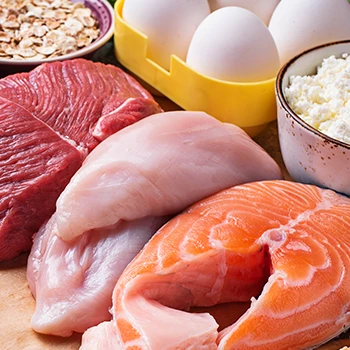
Nearly all meals derived from animals, such as meat, fish, eggs, and dairy products, include the essential nutrient vitamin B12.
Another great natural source of B12 and other B vitamins is beef liver, which provides 18.7 micrograms in just 100 grams. You can also get vitamin B12 in the chicken liver, with one chicken liver having 7.41 micrograms.
This water-soluble mineral often referred to as cobalamin, is essential for the growth of red blood cells, preserving healthy neurons and promoting normal brain development [17].
Those on a plant-based diet are at significant risk of vitamin B12 deficiency; therefore, they should consume supplements or enriched meals.
If you're a Lacto-Ovo vegetarian, you're on the safe side of this spectrum because you can obtain enough of this vitamin B12 via your dairy products and eggs. As for those on a vegetarian diet who solely eat vegetables and fruits, it is considerably harder to do so.
Although animal products are the richest source of vitamin B12, if you're a vegan, you can source this nutrient from a few plant foods like shiitake, nori, and tempeh. But note that plant foods naturally have a lesser concentration of B12 than animal sources.
8. Docosahexaenoic Acid (DHA)
DHA is a crucial omega-3 fatty acid for healthy brain growth and operation. Its deficiency can negatively impact mental health and cause impaired brain function, particularly in young children.
Furthermore, poor DHA consumption during pregnancy may harm embryonic cognitive development [18].
The primary sources of it are:
- Fatty fish
- Fish oil
- Pastured eggs
- Microalgae
I also recommend taking chia seeds, walnuts, and flaxseeds as these have high important fatty acid concentrations that the body can use to create DHA.
9. Eicosapentaenoic Acid (EPA)

Another essential omega-3 fatty acid is EPA, which is primarily present in cold-water fish, including:
- Salmon
- Herring
- Shrimp
- Eel
- Sturgeon
Some meals made from grass-fed animals, such as meat and full-fat dairy, also contain some EPA.
The body uses eicosapentaenoic acid (EPA) to make eicosanoids, signaling chemicals. These molecules perform several significant functions, including decreasing inflammation [19].
10. Taurine
Taurine is a sulfur molecule found in many body organs, including the brain, heart, and kidneys. Dietary taurine is essential for bile salt production, antioxidant defenses, and muscle function [20].
Only foods derived from animals, such as fish, seafood, meat, poultry, and dairy products, contain the taurine compound. Therefore, meat eaters have more taurine than plant food eaters.
11. Thiamine

Thiamine works with other B vitamins to promote and control the numerous chemical reactions required for growth promotion and health maintenance. Thiamine is also crucial for maintaining the metabolic processes that generate energy, especially from carbs [21].
Low thiamine consumption can cause:
- Fatigue
- Lack of appetite
- Constipation
- Depression
- Irritability [22].
Even though most beef meat is a rich source of this vitamin, pork has more thiamine per suggested serving than any other regularly consumed food.
Brewer's yeast, salmon, and legumes are other thiamine-rich foods you can consider.
Related Articles:
FAQs
Is B12 Only Found in Red Meat?
No, B12 isn't found only in meat. Other commonly consumed plant foods like tempeh contain small amounts of vitamin B12.
Is Creatine Only Found in Meat?
Yes, creatine is only found in meat because it's a naturally occurring compound in animal tissues.
Does Meat Have All the Nine Essential Amino Acids?
Yes, meat has all nine essential amino acids because it's a complete protein source. Apart from meat, eggs and milk have these amino acids as well.
At Carnivore Style, we believe understanding nutrition helps you make the best choices for your health. Check out our other guides for clear, science-backed information to support your carnivore lifestyle.
References:
- https://www.hsph.harvard.edu/nutritionsource/vitamin-a/
- https://www.ncbi.nlm.nih.gov/pmc/articles/PMC4785134/
- https://academic.oup.com/ajcn/article/96/5/1193S/4577160
- https://my.clevelandclinic.org/health/diseases/23107-vitamin-a-deficiency
- https://pubmed.ncbi.nlm.nih.gov/36055778/
- https://pubmed.ncbi.nlm.nih.gov/26041677/
- https://www.ncbi.nlm.nih.gov/pmc/articles/PMC8949037/
- https://www.sciencedirect.com/topics/nursing-and-health-professions/creatine-phosphate#:
- https://www.ncbi.nlm.nih.gov/pmc/articles/PMC5622748/#
- https://www.sciencedirect.com/topics/neuroscience/carnosine
- https://pubmed.ncbi.nlm.nih.gov/20479615/
- https://www.hsph.harvard.edu/nutritionsource/vitamin-d/
- https://www.ncbi.nlm.nih.gov/pmc/articles/PMC5643801/
- https://medlineplus.gov/vitaminddeficiency.html#
- https://www.ncbi.nlm.nih.gov/pmc/articles/PMC7400709/#
- https://www.webmd.com/vitamins/ai/ingredientmono-1026/l-carnitine
- https://www.ncbi.nlm.nih.gov/pmc/articles/PMC4772032/
- https://www.ncbi.nlm.nih.gov/pmc/articles/PMC3834239/
- https://www.ncbi.nlm.nih.gov/pmc/articles/PMC3257651/
- https://www.webmd.com/vitamins/ai/ingredientmono-1024/taurine#:
- https://www.webmd.com/vitamins-and-supplements/health-benefits-of-vitamin-b-1
- https://www.ncbi.nlm.nih.gov/books/NBK537204/


